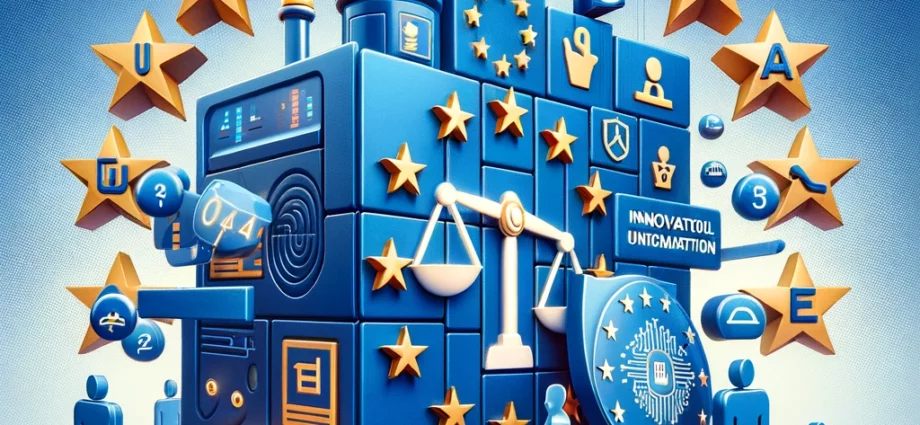The EU Parliament has passed a pioneering set of rules for artificial intelligence, establishing a risk-based regulatory framework aimed at promoting innovation while protecting fundamental rights and setting a global standard.
Key Points:
- The EU AI Act categorizes AI technologies based on risk levels, from unacceptable to low hazard, aiming to regulate their use while fostering innovation.
- Expected to take effect by May, with phased implementation starting from 2025, the Act is a significant step in managing AI’s societal impact.
- Amidst concerns over AI misuse and market dominance by major tech companies, the Act emphasizes human control over AI, setting a model for future global governance.
Summary:
The European Union’s recent approval of the world’s first comprehensive AI regulation marks a significant milestone in the governance of emerging technologies. This groundbreaking legislation, known as the EU AI Act, introduces a categorization system for AI applications based on their risk level, ranging from unacceptable to low hazard. This framework is designed to encourage technological advancement while ensuring that AI development respects human rights and safety. Set to be enforced by the end of the current legislative period in May, with a staggered implementation from 2025, the Act represents the EU’s ambition to lead in setting ethical and operational standards for AI globally.
The passage of the AI Act reflects a broader effort by the EU to regulate the digital domain, as seen in its recent enactment of the Digital Markets Act targeting anti-competitive practices among tech giants. With AI technologies increasingly integrated into our daily lives, there’s a pressing need to address potential abuses such as deepfakes and disinformation, especially in the context of critical global events like elections. The EU’s proactive stance, including Google’s recent restrictions on election-related queries by its Gemini chatbot, highlights a growing consensus on the need for oversight that balances innovation with ethical considerations.
Legal experts and policymakers see the EU AI Act not just as a legislative achievement, but as a foundational step towards a new model of tech governance that could influence international standards, much like the GDPR has done for data protection. As AI continues to evolve, the collaboration between businesses and regulators will be crucial in adapting these regulations to ensure they remain effective and equitable. The Act’s focus on human-centric AI development underscores a global shift towards technologies that empower societal progress and economic growth, while safeguarding against misuse and ensuring that advancements benefit humanity as a whole.
Source: World’s first major act to regulate AI passed by European lawmakers
Keep up to date on the latest AI news and tools by subscribing to our weekly newsletter, or following up on Twitter and Facebook.







